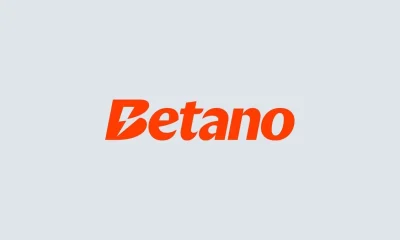Compliance Updates
IDnow is certified for operation of identification solutions via remote working

IDnow, a leading provider of Identity Verification-as-a-Service solutions with over 250 customers in Europe, has received official certification from TÜV IT for the operation of identification solutions via teleworking. This marks an important milestone for the industry to be able to operate and expand the necessary customer identification for banking and business processes even under exceptional circumstances.
The independent testing institute TÜV IT has certified the IDnow security concept for the operation of video identification and Qualified Electronic Signatures (QES) via remote working. The certification proves that the security measures carried out by IDnow in remote working achieve an equivalent security level as in the certified high-security IDnow Ident Centers. In consideration of the Corona (COVID-19) pandemic, this certification is now of particular importance, as it allows IDnow’s identification solutions for high-security processes to be used unchanged and further expanded even under the current circumstances.
“It is very important to us to be able to provide our customers with a reliable service at all times – especially in the current situation. With our certified concept, we are equipped to continue to offer our employees a safe working environment and to provide our service in a fail-safe manner. We can activate these measures at any time”, says Andreas Bodczek, CEO of IDnow. “Right now, we see an increased demand for remote identification as well as an increase in online credit transactions. We are proud that with our products we can make a contribution to ensuring smooth business and banking processes even in times of social distancing and that we can meet this demand of society”, he adds.
In addition to this remote working concept, IDnow is particularly fail-safe in comparison to the rest of the industry, with a diversification to eleven geographically distributed ID centre locations. The sites are located in various cities across Germany and Europe. A software specially developed for this purpose distributes incoming identification requests simultaneously to all ID centres. In this way, a disruption of one identification centre location can be compensated by other locations without delay.
“Over the past few years, we have invested heavily in the resilience and security of our technology and infrastructure. This is now paying off especially well for our customers. In the last few days we have received a significantly increased number of enquiries from major customers interested in our service as a highly secure identification solution”, says Armin Bauer, co-founder and CTO of IDnow.
3 Oaks Gaming
3 Oaks Gaming Enters Spanish Market

3 Oaks Gaming, an established distributor of iGaming content, has entered the Spanish market after securing certification to supply its slot portfolio in the region.
This approval enables Spanish-licensed operators to integrate more than 20 of 3 Oaks Gaming’s games, bringing some of the distributor’s most recognised slots to local players.
Certified titles available include recent releases such as 4 Pots of Egypt: Hold and Win, Rush for Gold, and Egypt Power. The portfolio showcases 3 Oaks Gaming’s signature Hold & Win mechanic alongside Scatter Pays and its increasingly popular 3 and 4 Pot models, delivering engaging gameplay certified for the Spanish market.
Securing the Spanish certification represents a significant step in 3 Oaks Gaming’s ongoing European growth strategy, supporting its expansion across established and regulated markets.
By entering Spain with a robust, fully approved portfolio, the distributor underlines its commitment to compliance while offering operators content that is aligned with local market requirements and player preferences.
Krasimir Pankovski, Head of Sales at 3 Oaks Gaming, said: “Spain is a strategically important regulated market for us, and obtaining certification here marks an important milestone in our growth journey. By launching a diverse range of certified titles, we are giving Spanish-licenced operators the flexibility to offer engaging content while meeting the highest regulatory standards.”
The post 3 Oaks Gaming Enters Spanish Market appeared first on Eastern European Gaming | Global iGaming & Tech Intelligence Hub.
Compliance Updates
Dutch Regulator KSA Warns Operators Over “Early Payout” Feature

The Dutch Gambling Regulator (KSA) has contacted several online sports betting providers regarding incomplete information about the “early payout” feature. The “early payout” feature allows a bet to be considered won before the match has officially ended. This feature is not available in the event of a draw. The KSA found that several providers failed to communicate this sufficiently, making it appear as if players could also use this option for draws.
Early payout
The Early Payout feature allows players to declare their bet a winner if their team has a two-goal lead during the match, regardless of the final result. The odds for Early Payout bets are lower than those for regular bets. The problem arises when this option appears to be offered for draw bets, as there is no team with a lead.
Unclear information leads to confusion
Providers also promote lower odds for draws under the “early payout” feature. The providers’ terms and conditions then state that early payouts are not possible for draws, but this isn’t always clearly communicated when placing the bet. This creates confusion among players, who may assume that early payouts also apply to draws.
Obligation to provide clear information
Providers are required to provide clear and understandable information about the possible outcomes of a bet, including the associated terms and conditions. The KSA determined that providers were not complying with this obligation when providing information about the “early payout” feature. Providers that offer this feature have been contacted and have improved their communication so that players are now more clearly informed about the limitations of early payout for bets on draws.
The post Dutch Regulator KSA Warns Operators Over “Early Payout” Feature appeared first on Eastern European Gaming | Global iGaming & Tech Intelligence Hub.
3 Oaks Gaming
3 Oaks Gaming Secures Registration from MINCETUR to Enter the Regulated Peruvian Market

3 Oaks Gaming, an established distributor of iGaming content, has expanded its footprint in the Latin American market after securing registration from MINCETUR, allowing the company to supply 56 of its titles in the regulated Peruvian market.
This approval permits Peru-licensed operators to integrate a range of 3 Oaks Gaming titles, bringing some of the distributor’s most recognised and top-performing games to local players.
The registration marks an important step in 3 Oaks Gaming’s broader LatAm expansion strategy. By entering Peru with a fully approved portfolio, the distributor continues to strengthen its presence in regulated markets and support operators with localised content tailored to regional player preferences.
Krasimir Pankovski, Head of Sales at 3 Oaks Gaming, said: “Peru is one of the most dynamic regulated markets in LatAm, and achieving registration here significantly enhances our regional footprint.”
The post 3 Oaks Gaming Secures Registration from MINCETUR to Enter the Regulated Peruvian Market appeared first on Americas iGaming & Sports Betting News.
-

 Compliance Updates7 days ago
Compliance Updates7 days agoIllinois Gaming Board and Attorney General’s Office Issue more than 60 Cease-and-Desist Letters to Illegal Online Casino and Sweepstakes Operators
-

 Canada7 days ago
Canada7 days agoINCENTIVE GAMES PARTNERS WITH LOTO-QUÉBEC TO LAUNCH REAL-MONEY GAMES IN THE PROVINCE OF QUÉBEC, CANADA
-

 Australia7 days ago
Australia7 days agoRegulating the Game 2026 Sydney — One Month Countdown as Sector Leaders Anticipate Inaugural RTG Global Awards
-

 Always Up! x100007 days ago
Always Up! x100007 days agoRing in the Chinese New Year with BGaming’s Seasonal Promotion
-

 Latest News7 days ago
Latest News7 days agoLaunch Of A Fresh Online Casino Guide 2026
-

 Latest News7 days ago
Latest News7 days agoVolcano Power — Hold & Hit 3×3 from Spinomenal
-

 Accra6 days ago
Accra6 days agoKaizen Gaming Launches Betano in Ghana — 20th Regulated Market & Responsible GameTech Expansion
-

 Affigates7 days ago
Affigates7 days agoSoftConstruct AI and Affigates Bring Cutting‑Edge Solutions to AIBC Eurasia 2026 in Dubai



















